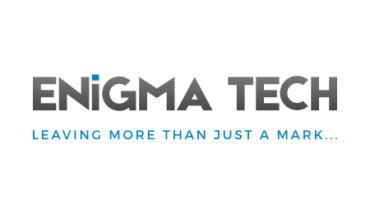Our expertise lies in the domains of 3D scanning, Reverse Engineering, 3D printing, and fiber laser engraving. Through meticulous scanning processes, we proficiently generate CAD documents via reverse engineering techniques. Our state-of-the-art facilities cater to fiber laser marking services tailored for industries such as Pharmaceutical, Automotive, and Food and Beverage. We excel in meeting diverse customer demands through efficient sourcing and supply chain management. Since our establishment, we have successfully marked over 3000 components and drafted more than 600 drawings, showcasing our commitment to quality and precision in every project undertaken.
Our Services:
3D Scanning
3D scanning is a tech that captures digital 3D models of objects or environments. Scanners like lasers or structured lights collect data points on surfaces, processed through software to create a detailed 3D model. It's used in manufacturing, healthcare, rapid prototyping, reverse engineering, VR content, and custom manufacturing. It captures details with high accuracy, making it valuable for innovation, design, and analysis.
Reverse Engineering
Reverse engineering is a method of analyzing a product or system to understand how it works without original documentation. This involves dismantling and inspecting to gather valuable information. Engineers use tools like CAD software to recreate a digital model of the object. This process has applications in multiple industries and is used for redesign, product support, quality assurance, and innovation.
3D Printing
3D printing creates objects from digital designs by depositing material layer by layer. It's cost-effective and can make complex geometries. It's used in many industries including healthcare, aerospace, and consumer goods, changing product manufacturing.
Analysis Reporting
3D analysis reporting from 3D scanning provides insights into the scanned object's geometry, surface properties, and structural integrity. Engineers and designers analyze the data using software tools for measurements, deviations, and tolerance checks. Reports with findings and recommendations are compiled, serving industries such as quality control, product development, and forensic investigations. 3D analysis reporting enables informed decisions and process optimization based on reliable 3D scanning technology data.
Laser Engraving
Fiber laser engraving is a precise method of marking materials using a high-powered laser beam. It creates permanent markings quickly and accurately, commonly used in industries including automotive, aerospace, electronics, and medical devices for branding and decoration. It's eco-friendly, doesn't produce waste or use consumables, making it a reliable and efficient option for precise and permanent markings on various materials.
Outsourced Engineering
Outsourced engineering hires external engineers for projects instead of in-house teams. This saves costs and offers specialized skills. It includes design, testing, analysis, and management. Outsourcing helps companies focus on strengths and adapt to change.
Whether you prefer to visit our workshop or have us come to you, we’re here to meet your needs.
Bring your parts directly to our workshop for expert service. Discuss your needs with our experienced team and explore customization options. With state-of-the-art equipment, we offer comprehensive services including 3D scanning, reverse engineering, analysis reporting, 3D printing, and laser engraving. Your project is in capable hands with us.
Experience convenience and flexibility with our portable services. Our advanced equipment allows us to bring our expertise directly to your location, we handle it all on-site with precision and efficiency. Minimize downtime and disruption to your operations while enjoying personalized service tailored to your needs. Get quality solutions delivered wherever you are with our dedicated team anywhere in South Africa.
Frequently Asked Questions
Industries such as manufacturing, automotive, aerospace, healthcare, architecture, cultural heritage, and entertainment frequently utilize 3D scanning technology.
Yes, 3D scanning is commonly used for quality control to inspect manufactured parts, compare them against CAD models, identify deviations, and ensure consistency in production processes.
The accuracy of 3D scanning depends on various factors such as the type of scanner used, the resolution settings, and the complexity of the object being scanned. High-end scanners can achieve sub-millimeter accuracy.
Advantages include access to specialized expertise, cost savings, scalability, flexibility, reduced time to market, and the ability to focus on core business activities.
Common tasks include product design and development, prototyping, simulation and analysis, testing, documentation, and project management.
Advantages include design freedom, rapid prototyping, customization, complex geometries, cost-effectiveness for low-volume production, reduced material waste, and on-demand manufacturing.
Industries such as aerospace, automotive, healthcare (including medical devices and prosthetics), architecture, fashion, and consumer goods are leveraging 3D printing for production applications.
Materials commonly engraved with lasers include metals (such as stainless steel, aluminum), plastics, wood, glass, acrylic, leather, stone, ceramics, and certain types of fabric.
Applications include product branding and labeling, signage, personalization of items (such as gifts and trophies), industrial part marking (for traceability and identification), artistic engraving, and decorative etching.
Laser engraving offers advantages such as precision, speed, versatility, and the ability to create intricate designs compared to traditional methods like hand engraving or mechanical engraving.
Contact Us
Address
40 Willet Street Newton Park Port Elizabeth Eastern Cape South Africa 6055
Phone and Email
Phone: +27 81 788 2891
Email: allistair@enigmatech.co.za



